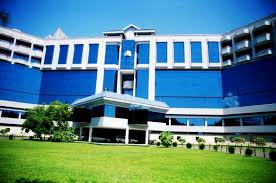Cox's Bazar, The tourist capital of Bangladesh.
The beach in Cox's Bazar is an unbroken 125 km sandy sea beach with a gentle slope, one of the worlds
longest. It is located
150 km south of the industrial port Chittagong.
Cox's Bazar is also known by the name Panowa, whose literal translation means
"yellow flower." Its other old name was "Palongkee". The
modern Cox's Bazar derives its name from Captain Hiram Cox (died 1799), an officer of the British East India Company. Cox was
appointed Superintendent of Palongkee outpost after Warren
Hastings becameGovernor of Bengal. Captain Cox was specially
mobilised to deal with a century-long conflict between Arakan refugees and
local Rakhains. He embarked upon the task of rehabilitating refugees in the
area and made significant progress. Captain Cox died in 1799 before he could
finish his work. To commemorate his role in rehabilitation work, a market was
established and named Cox's Bazar ("Cox's Market") after him. Today,
Cox's Bazar is one of the most-visited tourist destinations in Bangladesh
There are many tourist attractions around Cox’s Bazar,
which are easily accessible by Jeeps and in some cases cars.
Himchari:
Is famous for Himchari Waterfall and
natural beauty. It is located about 8 km south of Cox’s Bazar. During the
winter dry season, the waterfall dwindles but in the rainy season it is
fabulous. Besides a beach drive to Himchari is an exotic experience.
Inani Beach
A Pristine rocky beach with corals all around. It is bordered
by hills and forests and is located only 32km south of Cox’s Bazar. It can also
be accessed via Himchari.
Aggmeda Khyang:
Aggmeda Khyang:
A large elaborately planned and decorated Buddhist Monastery. It is
located near the entrance to the Cox's Bazar town. It has been designed to sit
on a series of large timber columns. The monastery holds a big collection of
manuscripts, prayer chamber, bronze Buddha images of Burmese origin and an
assembly hall.
Ramu:
Ramu:
A typical Buddhist village located 16 kilometers away from Cox's
Bazar. It is accessible from the main highway leading to Chittagong Temple on the Baghkhali
River
Teknaf:
Teknaf:
A drive to this small town called
Teknaf which is about 80km from Cox’s Bazar is a memorable experience as the
road goes alongside the beautiful Naf river and through forested hilly roads.
Teknaf is the southernmost point of Bangladesh and is bordered by Myanmar










No comments:
Post a Comment